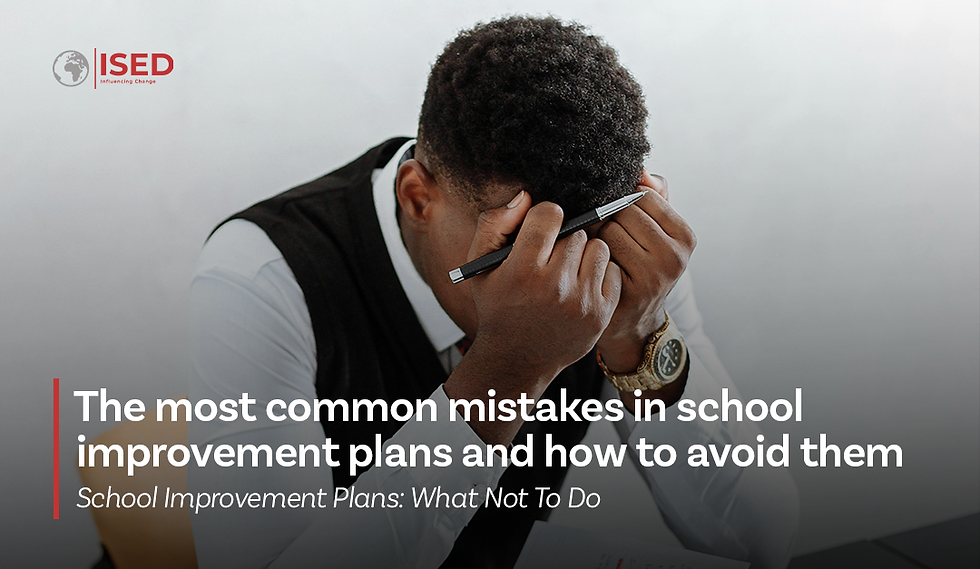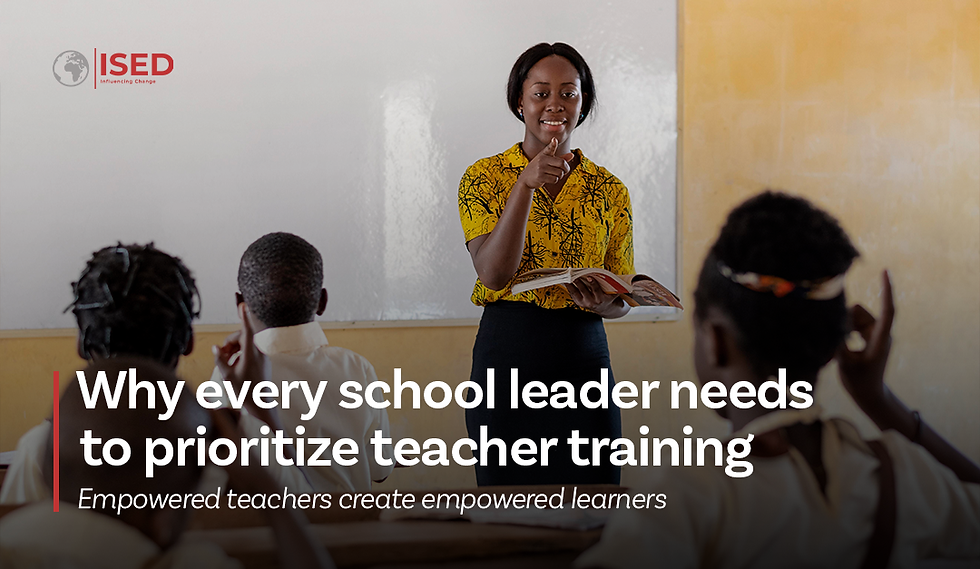The Discipline Dilemma
- admin37502
- Jul 3, 2023
- 5 min read

Living in the 21st century seems to have put pressure on all parents to adopt more modern approaches to life in general and to behaviour management especially. Parents are bombarded with a lot of information about behaviour management strategies that are laced with cultural nuances or are framed by research from psychologists.
From the perspective of African parents, there seems to be a divide between the need to follow cultural norms, religious values and the research shared by professionals. So, let’s start by examining two popular proverbs that are used in most talks on parenting.
Train up a child in the way he should go, And when he is old he will not depart from it.
Foolishness is bound up in the heart of a child; The rod of correction will drive it far from him.
We are invited to first train our children before we apply sanctions. Multiple psychologists have shared research on behaviour management and behaviour modification strategies and most agree that early interventions account for more successful behaviour management (self-regulation) in adulthood. Adler, Nelson and Dreikurs agree that young people need to be taught the skills required to become responsible members of their communities; they have to be taught. Parents are the children’s first teachers.
This is a good place to pause and reflect - How much time have we spent training our children? Are we correcting them or simply punishing them? There is a clear distinction between discipline and punishment. Our proverbs share the need to discipline (train) before any form of redirection, correction and punishment (sanction). It will interest you to know that the dictionary definition of discipline as a verb (an action) presents the same distinction between discipline and punishment.
To discipline (verb): train (someone) to obey rules or a code of behaviour, using punishment to correct disobedience.
Training comes first.
Again, I say, training comes first! When effective training is in place, we almost always eliminate the need for punishments. Corporal punishments are never recommended. Our focus should be to train the child and redirect misbehaviour. Punishments (sanctions) should be logical consequences for disobedience, with clear direction for ways forward; behaviour expectations should be reinforced. We have made the choice to be parents and so we must ask ourselves some key questions.
How much time have we invested into teaching our children the rules so they know the expectations and the boundaries?
How much time have we as parents invested into training our children to obey these rules?
What are the agreed correctional measures and sanctions (punishments) for disobedience?
To answer these questions, you must spend time with your children. Nothing of value comes easy; no specialism is acquired within a short timeframe. The psychologist Malcolm Gladwell asserts that the key to achieving mastery or expertise in any skill is by practising that skill over an extended period - 10,000 hours. Managing one’s emotions and behaviour (self-regulation) is a skill that we all need time to master. It is important for us as parents to begin to train our children from their infancy, not in their preteen or teenage years.
What does this training look like?
The specifics for each family will defer based on cultural background; however, there are universal principles that apply to training young people.
Identify your family values and as parents agree on them. This is your curriculum. Make a list of these values and plan to teach one value per week using different media. Spend some time researching appropriate stories and accompanying resources that will help you drive your message.
For children, stories, songs and rhymes are great conversation starters. These could be retold verbally but have more of an impact when more senses are engaged. Using videos helps the children engage more senses and increases the level of connection. These are your training activities. Find a story that teaches the value you are focusing on for each week. Vary the stories but always include stories with the relevant cultural and religious backgrounds. As Africans, we have to share our cultural heritage with our children.
Book an appointment (daily) to have these training sessions. The timing should range from 10 minutes to 30 minutes. Make them as engaging as possible; use your videos, multimedia presentations, props for your story telling, make posters, paint pictures, etc. Go all out to teach your family values to your children. Based on your schedules as parents, you could alternate the teaching. If you do, you must spend time together discussing options so that you are both in alignment. You might need to spend more time on these sessions over the weekend and have brief pit stops during the week - that’s fine too. It means you introduce a new value each weekend and review it during the week. Book specific times so that you don’t forget this. Children grow up very quickly and the window of opportunity passes by fast.
Don’t feel pressured to rush through the values. Training involves doing the same thing over and over until you gain mastery. Extending one value over two or three weeks is fine. When you’re done with the list, go back to the top and start over. You can use the exact same stories to support familiarity and to help you young children begin to retell those stories in their own words - that’s training.
Partnering with schools and other support systems
Training our children in not the prerogative of schools, day care centres and religious institutions. It is the responsibility of every parent to train their child. Parents enter into partnerships with schools, day care centres and religious institutions to train their children so these partnerships should be formed carefully.
No one signs a contract without reading the fine print. As parents, you cannot randomly select a partner to train your child. You have to be strategic with the desired goal of raising a disciplined adult in mind. There are some key considerations when identifying a partner:
Personal and family values. What are your personal and family values? Outline these values and teach them to your children through modelling and verbal reinforcement.
Values of partner organisations. What are the values of the partner (school, day care, etc)? Visit the partner organisation and find out if they have similar values articulated. Check for exemplars among their students and staff so you make informed decisions.
Values of other partners. What are the values of your support network at home (relatives and domestic staff)? Discuss these values with all the people who live in your home because they are inadvertently partners on your parenting journey. There shouldn’t be ambiguity around behaviour expectations, boundaries, rewards and sanctions. Your family values should extend to all who live in your home.
Don’t embark on your parenting journey alone. Partner with the right people and resources to help you and most importantly, be strategic about parenting your children. Help them learn how to navigate this world and take responsibility for themselves as they mature into independent adults.







Comments